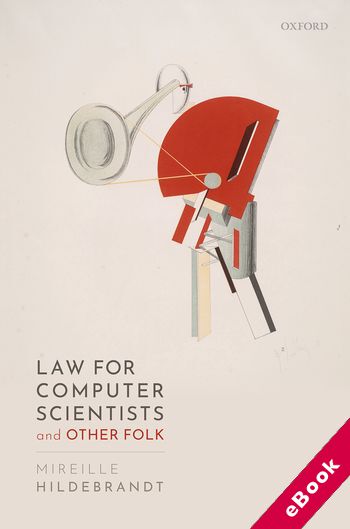
The device(s) you use to access the eBook content must be authorized with an Adobe ID before you download the product otherwise it will fail to register correctly.
For further information see https://www.wildy.com/ebook-formats
Once the order is confirmed an automated e-mail will be sent to you to allow you to download the eBook.
All eBooks are supplied firm sale and cannot be returned. If you believe there is a fault with your eBook then contact us on ebooks@wildy.com and we will help in resolving the issue. This does not affect your statutory rights.
This is the first textbook introducing law to computer scientists. The book covers privacy and data protection law, cybercrime, intellectual property, private law liability and legal personhood and legal agency, next to introductions to private law, public law, criminal law and international and supranational law. It provides an overview of the practical implications of law, their theoretical underpinnings and how they affect the study and construction of computational architectures. In a constitutional democracy everyone is under the Rule of Law, including those who develop code and systems, and those who put applications on the market. It is pivotal that computer scientists and developers get to know what law and the Rule of Law require. Before talking about ethics, we need to make sure that the checks and balances of law and the Rule of Law are in place and complied with. Though it is focused on European law, it also refers to US law and aims to provide insights into what makes law, law, rather than brute force or morality, demonstrating the operations of law in a way that has global relevance. This book is geared to those who have no wish to become lawyers but are nevertheless forced to consider the salience of legal rights and obligations with regard to the construction, maintenance and protection of computational artefacts.